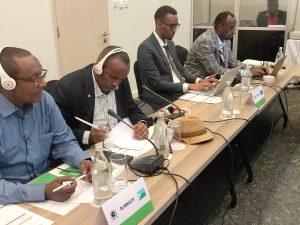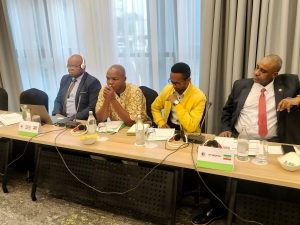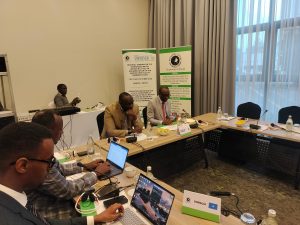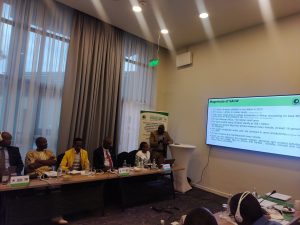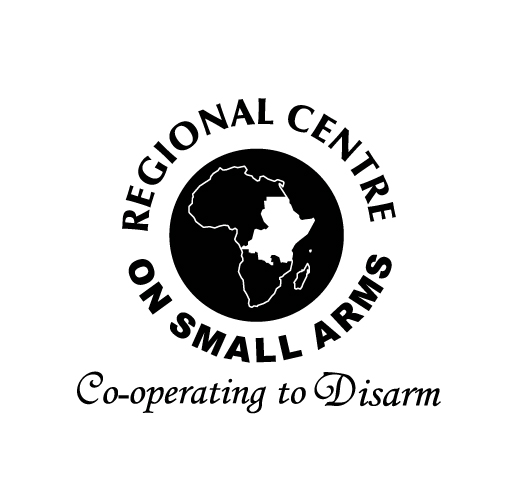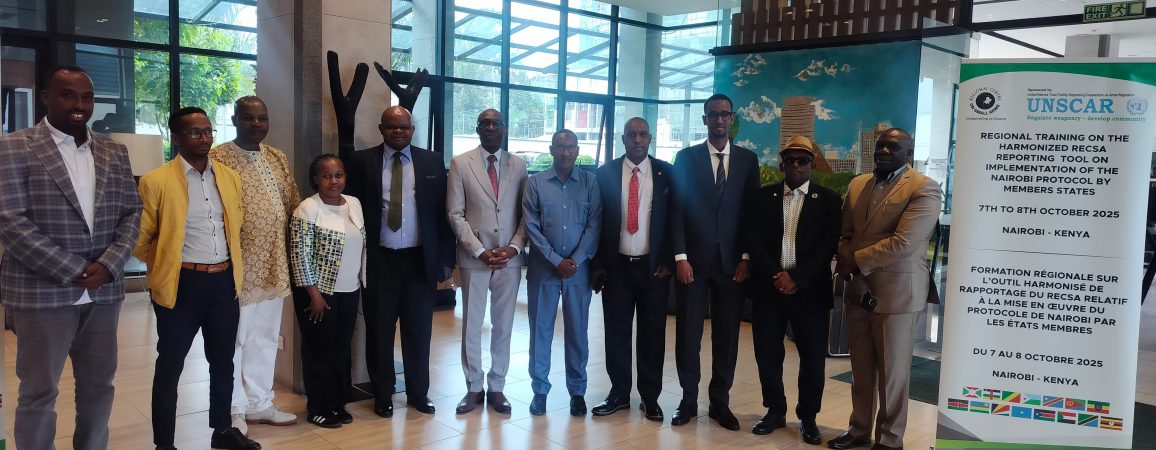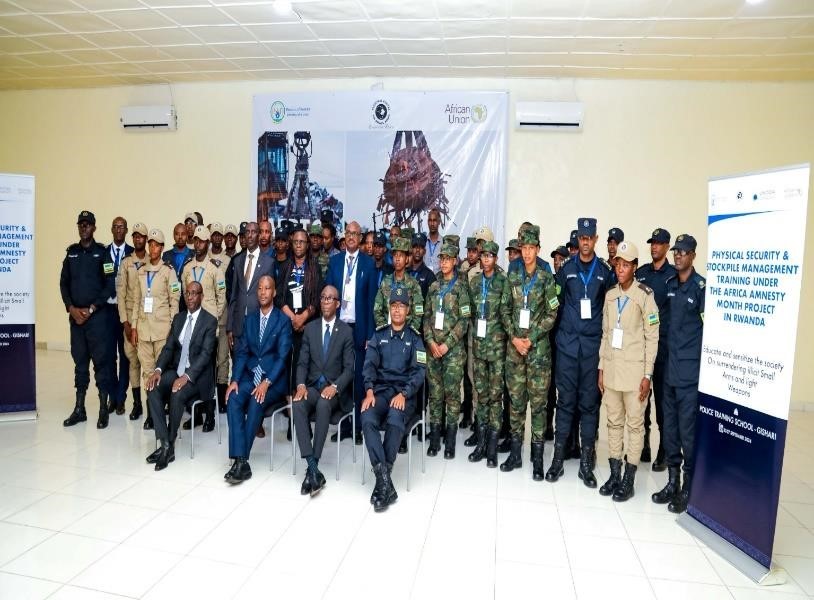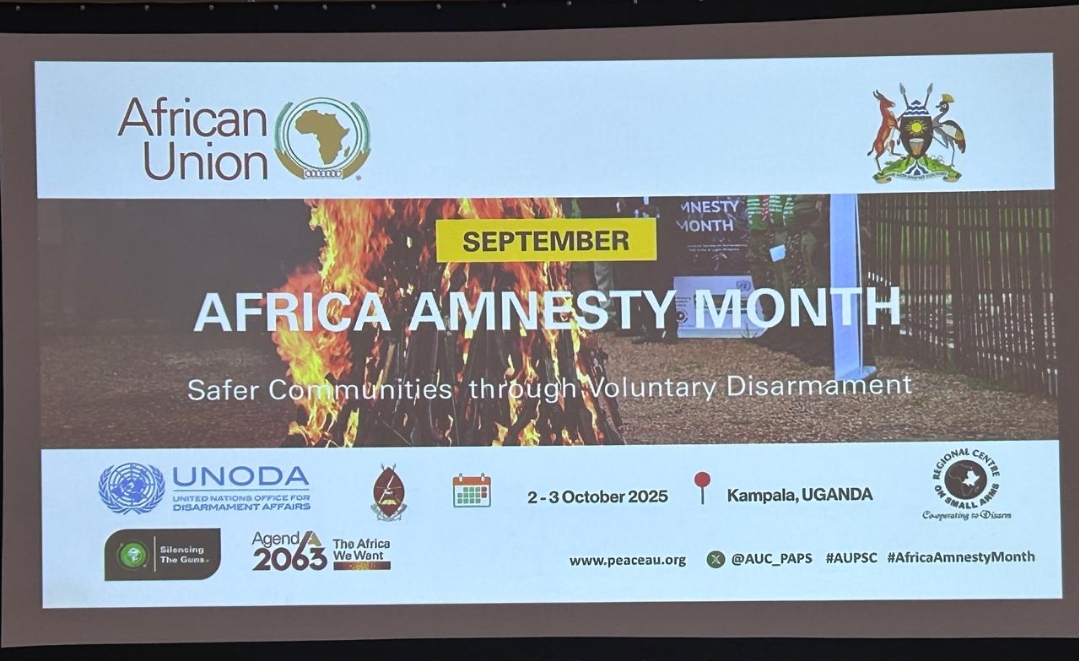📍 Nairobi, 7–8 October 2025
RECSA convened a sub-regional training on the Harmonized Reporting Tool from 7–8 October 2025 in Nairobi. The workshop brought together experts and National Focal Point Coordinators from the Central African Republic (🇨🇫), Djibouti (🇩🇯), Ethiopia (🇪🇹), and Somalia (🇸🇴) to strengthen implementation of the Nairobi Protocol on illicit small arms and light weapons (SALW).
Overview
The training focused on improving national and sub-regional reporting capacities so that data becomes the engine for policy, coordination and action. As RECSA marks 20 years of regional leadership on arms control, the meeting emphasized the organisation’s forward-looking commitment to closing information gaps and enhancing cross-border cooperation.
Objectives
- Strengthen the technical capacity of National Focal Point Coordinators on SALW to use the Harmonized Reporting Tool.
- Improve the timeliness, accuracy and completeness of national SALW reports under Article 18 of the Nairobi Protocol.
- Foster coordination and data-sharing across member states to enable evidence-based policy and cross-border responses.
- Identify challenges to reporting and develop practical solutions and follow-up actions.
Participants
Representatives and experts from the following countries attended:
- Central African Republic (🇨🇫)
- Djibouti (🇩🇯)
- Ethiopia (🇪🇹)
- Somalia (🇸🇴)
Participants included National Focal Point Coordinators on SALW, technical officers, data managers, and regional experts in arms control and reporting.
Key Messages
- Reporting matters. Article 18 of the Nairobi Protocol establishes reporting as a legal and strategic pillar in the fight against illicit small arms — timely and accurate reporting is essential to detecting trends, identifying gaps and informing responses.
- Data drives action. Strengthened reporting systems will enable member states to make evidence-based policy decisions and coordinate effective cross-border measures.
- Implementation is everything. The Nairobi Protocol’s value depends on consistent and sustained implementation at national and regional levels.
“Let us ensure our commitment is not only written in protocols, but reflected in action.” — Jean Pierre Betindji, RECSA Executive Secretary.
Expected Outcomes
- Enhanced skills for focal points to generate and submit comprehensive SALW reports.
- Agreed next steps for technical support, peer-learning exchanges and follow-up monitoring.
- A roadmap for improving national reporting cycles and strengthening regional data-sharing mechanisms.
Contact
For more information, please contact:
Regional Centre on Small Arms (RECSA) Communications & Outreach Email: info@recsasec.org Website: www.recsasec.org x.com: @recsasec
